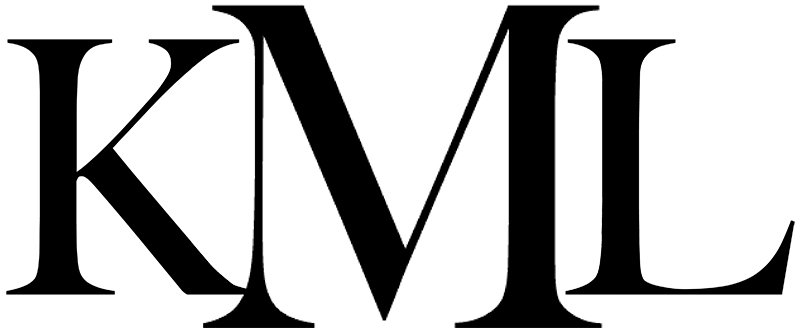Dream (1878-1882), by Odilon Redon. Rijksmuseum The Public Domain Review
The mission of the Kristine Mann Library is conceived as providing intellectual access, as well as assistance and training in the location and use of its unique collection, to students and others interested in the work of C.G. Jung. The library is the steward of its present resources and of the information and services that will become available in the future.
Nestled away on the top floor of a five story brownstone on East 39th street in Manhattan is the Kristine Mann Library, a small research library dedicated to the Swiss Psychiatrist-Psychologist Carl Gustav Jung, one of the most influential figures in the history of depth psychology.
Founded by the Analytical Psychology Club of New York in 1941, KML is considered one of the most important and accessible resources in the world focusing on the work and interests of C.G. Jung. The oldest Jungian library in North America, KML serves the members of the APC, the analysts in training at the C.G. Jung Institute of NY and other members of the local, national, and international Jungian community.
The library collects and catalogs books, papers, journals, theses, audio recordings, and films by and about Jung and others in the field of Jungian Psychology. The collection also includes materials in related areas of study such as Eastern and Western religions, alchemy, mythology (from Greek to Egyptians), mystical traditions, anthropology, the occult, the arts, symbolism, fairytales, folktales, and dreams.
Initially housed in a small cupboard in a basement room of the Architectural League of New York, the library, owned by the APC, became a growing depository for Jungiana, including APC publications, seminar notes, books and other materials donated by members. Papers and books were sent from Zurich to ensure their safety and accessibility during the uncertain WWII years.
In 1945, the library was named in honor of Dr. Kristine Mann, one of the first psychoanalysts in the United States and a founder of the APC of New York. The library, which included her bequest of over 400 books and papers, eventually moved to a pleasant suite in the Peter Cooper Hotel. In 1975, the library relocated to its current home which also houses the C.G. Jung Center of New York along with the C.G. Jung Foundation, their bookstore, the C.G. Jung Institute, the Analytical Psychology Club, ARAS (The Archive for Research in Archetypal Symbolism), and the New York Association for Analytical Psychology.
Board of Trustees
The KML Board of Trustees comprises a combination of Jungian therapists, scholars, artists, and similarly avid Jung enthusiasts, all interested in preserving this unique archive of books and multimedia materials to delight and inform current and future generations.
Beth Darlington PhD
Farzad Mahootian PhD
Bob McCullough
Stephen Moskovitz
Board Chair: Jay Sherry PhD
Library Staff
-
-

Heidi Boyson
RESEARCH LIBRARIAN
info@junglibrary.org
Heidi Boyson, LMHC, MS, MA has worked at the C.G. Jung Center for six years. She is a licensed psychotherapist with specialties in play therapy, grief, mindfulness and couples work. Her current favorite sections of the library are gender studies, transpersonal, sandtray, dreams and trauma. Her favorite journal is Parabola. She loves to read (not surprisingly), go to museums, hike, travel and meditate.
Heidi has served in the capacity of Librarian in a variety of settings including a child welfare agency in Harlem and a public library in NJ. Perhaps most relevant is her family’s vast collection of children’s and illustrated books and artifacts that was eventually donated to the Dodd Archival Research Center at University of Connecticut in honor of her mother, Phyllis Hirsch Boyson. Her knowledge of literature, especially related to rare books, is a significant benefit to the library, as is her creativity and warmth. One of her favorite Jung quotes is:
“Naturally, the creative impulse is forever the maker of personality and uses that individual form, that distinction. Therefore it is absolutely necessary that, in the process of individuation, everybody should become aware of his creative instinct, no matter how small it is.” — Nietzsche’s Zarathustra: Notes of the Seminar Given in 1937-1939, Vol 1 (November 6, 1935, p. 667)
-

Matthew Carson
HEAD LIBRARIAN
Matthew is the Head Librarian at the Kristine Mann Library at the C.G. Jung Center in New York. He studied Anthropology with a specialization in comparative religion at Oxford and earned his MLS (Masters in Library Science) at Pratt Institute, New York. With more than 20 years’ of library and archives experience, he has worked at International Center of Photography, the Guggenheim and the National Book Foundation. Matthew has a wide knowledge of photography, art, poetry, film, and literature. He has worked in public libraries throughout New Jersey and also as a rare and antiquarian book dealer.
Formerly Head Librarian and Archivist at the International Center of Photography (ICP), he developed and processed the first-ever institutional archives of the ICP-founder Cornell Capa.
Matthew was a co-curator of the book component of the ICP Triennial: A Different Kind of Order. He was also a co-organizer of Shashin a Japanese photography symposium and festival and is a co-founder 10x10photobooks.
Matthew has a keen interest in cinema, theater and the study of Romany culture. He shares his home with his son and two cats, many books and an ongoing collection of contemporary art.

